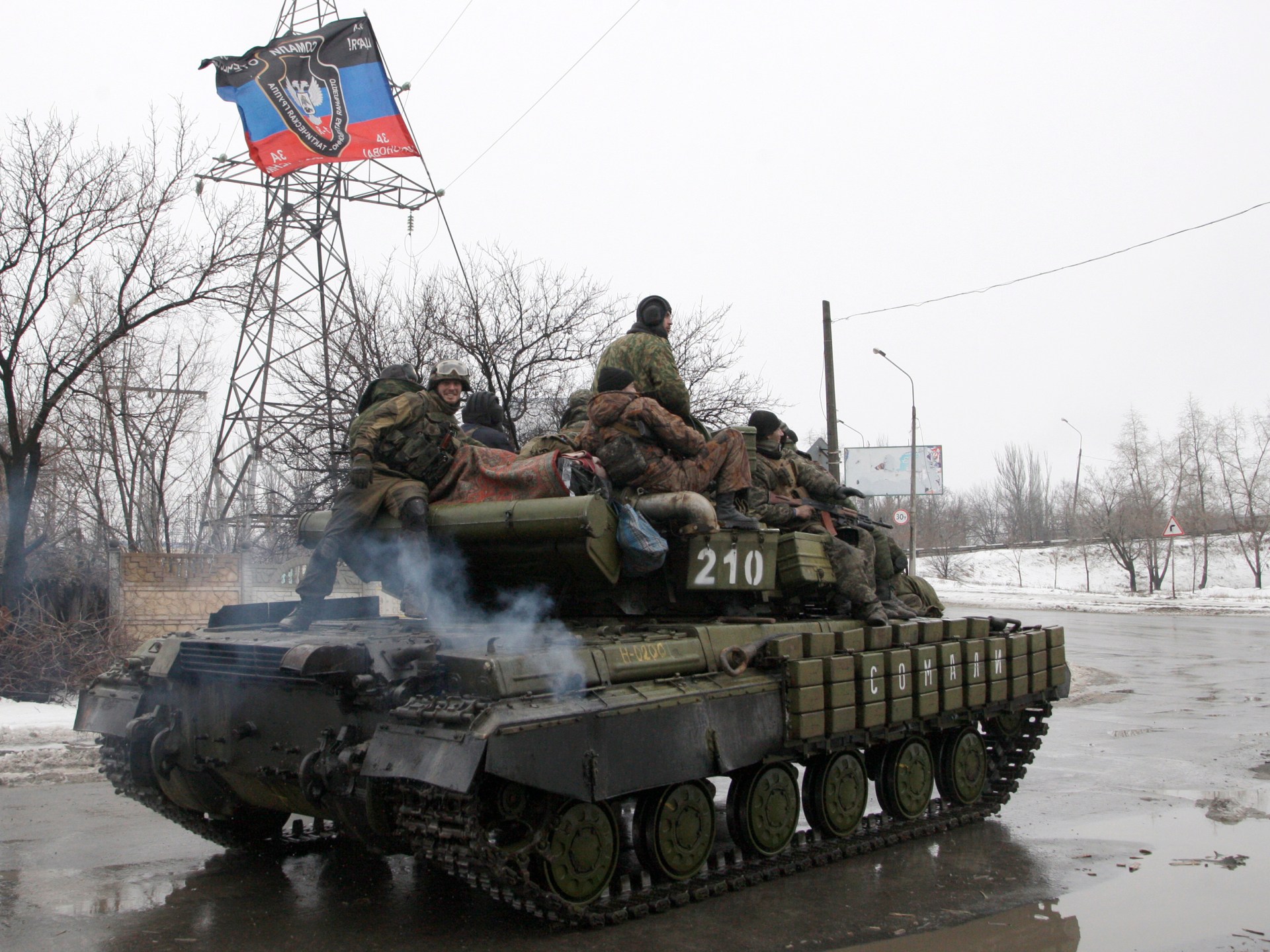A flawed peace deal would not end the war in Ukraine

Today, we mark three years of Russia’s full-scale invasion of Ukraine. The Ukrainian people have exhibited remarkable resilience for three years, thwarting Russian attempts to seize Kyiv and obliging its army to flee from Kharkiv and Kherson.
Ukrainians continue to resist the Russian army’s relentless assault, but the conflict has unavoidably reached a grinding point, putting the West’s willingness to support Ukraine and its ability to endure.
A new administration in the United States has signaled a dramatic change in its policy toward Ukraine, pleading for a swift conclusion of a peace deal at this crucial point. Without mentioning Ukraine, US and Russian officials met in Saudi Arabia last week for direct negotiations. Fears have been raised that President Donald Trump’s administration is laying the groundwork for more concessions in the name of de-escalation with Russia as a result of this meeting and the rhetoric emanating from Washington.
The key question for Ukraine is not whether to pursue diplomacy because any conflict will ultimately come to an end at the table, but rather what terms will be used during those negotiations. There is a chance that Ukraine will be pressured into accepting a deal that doesn’t address its long-term security concerns and temporarily freezes the conflict rather than putting an end to it if the goal is merely to put an end to the fighting as soon as possible.
Recent history provides a clear warning against such flawed “peacemaking.” In February 2014, Russia invaded Ukraine’s Crimean Peninsula and occupied it, two months later, its troops along with local pro-Russia forces launched an operation in eastern Ukraine’s Donbas region, taking control of some territory. Kyiv was forced into French and German-brokered negotiations in August that sought to end the conflict in unfavorable terms.
What came to be known as the Minsk I agreement, signed in September of that year, lasted no more than six months. Ukraine was once more under renewed attack by forces loyal to Moscow and to the traditional Russian army in January 2015. The Minsk II Agreement, which was reached in February 2015, was reached through negotiations and signed, stipulating that Kyiv had to acknowledge the “special status” of two in reality occupied Donbass.
In the end, the Minsk agreements failed to bring about a lasting peace. They prevented Russia from gaining control over the occupied territories while constraining Ukraine’s political and military stances while being politically and militarily resisted. Moscow never adhered to its commitments, using the diplomatic process to buy time, regroup and prepare for further aggression.
The Minsk Agreements’ failures serve as a warning sign that settlements that ignore societal expectations and security realities do not achieve lasting peace but only delay the start of a conflict.
Any resolution must be based on the people’s wishes after three years of fighting. What the Ukrainians want, clearly and in-depth, are revealed in polls conducted in Ukraine.
War fatigue is real, as illustrated by a poll conducted by Gallup in November, in which 52 percent of respondents said they supported negotiations. However, when it comes to any territorial concessions, only 27 percent said Ukraine should consider such a step. A majority of Ukrainians oppose the granting of any land as part of a peace treaty.
These figures highlight a inescapable political reality: A peace treaty that legitimizes Russian territorial gains lacks widespread support in Ukraine. Under enormous public pressure, any leaders of Ukraine who attempt to negotiate these terms would be under enormous pressure. And even if a diplomatic agreement were to be put into practice, domestic efforts would face fierce opposition.
In order to expedite a resolution, US and other Western policymakers must respect the Ukrainian people’s wishes. They should think about continuing to support the Ukrainian army if they do want a peace deal to come into effect. Ukraine’s ability to negotiate from a strong position depends on its allies’ unwavering support and continued military advancement.
In making decisions on their Ukraine policy, Western countries should not fall for Russia’s flawed narrative. Moscow has been attempting to conceal its growing vulnerabilities while presenting the appearance of strength.
Despite sanctions, Russian officials insist that their military operations are ongoing, their currency is stable, and they have time to move forward. Russian representatives reportedly made the suggestion that only Western economies are suffering from prolonged engagement in Ukraine during the Riyadh talks and that Moscow’s restaurants are full.
Russia’s message was clear: If the West is facing declining returns, it can fight for as long as it takes. Some in the West have come to the conclusion that a quick peace agreement based on Ukrainian concessions might be the most sensible course of action.
But it is not. Russia’s desire for more aggression would only increase if it were to be appeased.
Establishing a robust post-war security framework is the only way to ensure peace in Ukraine. Whether through NATO integration, bilateral defence agreements or a structured European-led security framework, Ukraine needs concrete security commitments. Any peace agreement that does not include these would increase the likelihood of a new conflict.
As Washington evaluates its role in Ukraine, the next few months will be crucial. While much is unknown, one thing is certain: Ukraine’s conflict is not just about reclaiming its territory; it also concerns ensuring that its sovereignty is restored. The next stage of the conflict will determine whether Western policy stays in line with that objective or changes to a more transactional one.
Source: Aljazeera
Leave a Reply